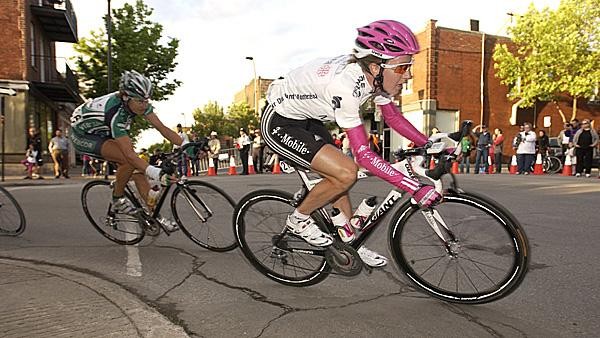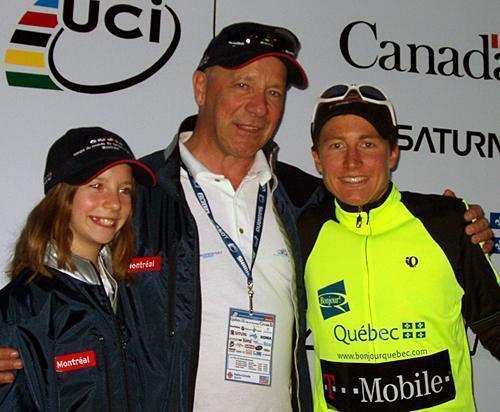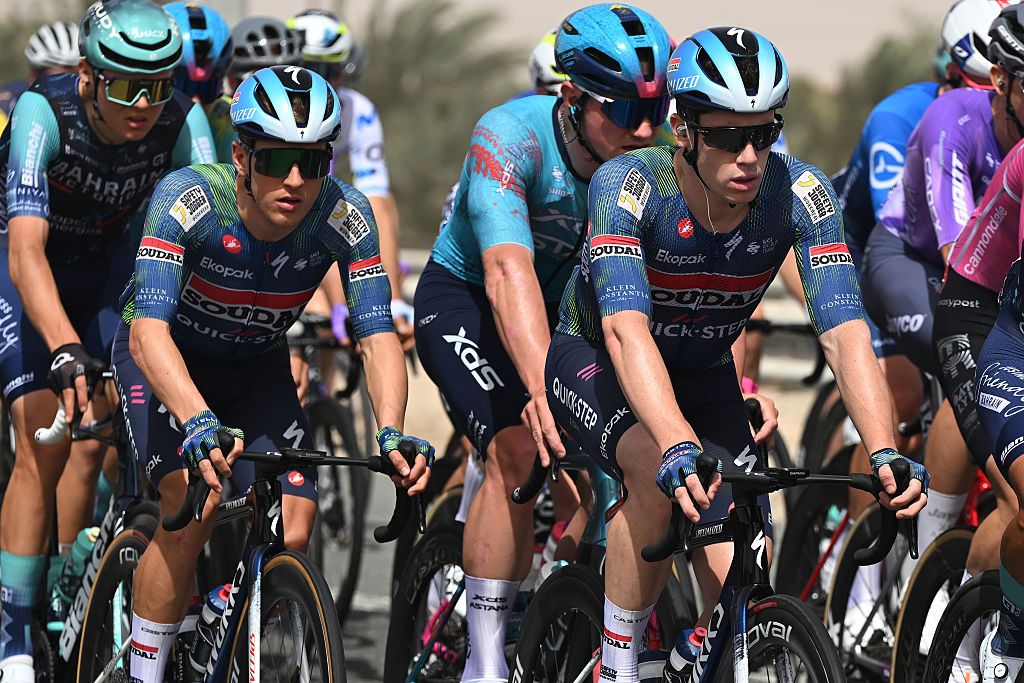UCI women's race cancellations hit hard
North American women left with few options
The latest race content, interviews, features, reviews and expert buying guides, direct to your inbox!
You are now subscribed
Your newsletter sign-up was successful


The abrupt cancellation of three Canadian UCI women's races this week leaves just two world-class events in North America for women. The loss of the Montreal World Cup, Grand Tour du Montreal and Tour de PEI follows a steady decline in the number of international races for women on the continent.
Former time trial World Champion Amber Neben expressed her disappointment with the news on Wednesday. "That is huge. There really is no reason for the European teams to come over now," she said. "It's really sad that a staple like the Montreal World Cup is gone."
The sole remaining mass-start international race, the Liberty Classic, regularly attracted top European teams like Equipe Nürnberger and HTC-Columbia who headed across the Atlantic Ocean to compete in the World Cup, then traveled south to Philadelphia. Whether or not teams will still make the trip for one race remains to be seen.
With the loss of these three events, women lose the opportunity to compete against the world's strongest riders in events which were unique in that they were not paired with men's events.
"I think they were very important for helping to raise the level of cycling in North America. They were also races that were focused on the women and that was special," said Neben.
The Canadian Cycling Association's CEO Greg Mathieu did not know why race organiser Daniel Manibal decided to suddenly retire, effectively ending the future for the events.
There was some speculation that the search for sponsorship had been impacted by the addition of two new men's ProTour races in Canada this year. Mathieu said that this wasn't given as a reason for Manibal's withdrawal.
The latest race content, interviews, features, reviews and expert buying guides, direct to your inbox!
"We don't know that there was a sponsorship deduction," Mathieu said, clarifying that it was the loss of Manibal which led to the races being canceled. "It might not have been an issue to carve out one of the races [if money was an issue]. However, the fact that the World Cup has a very high financial and organizational standard, there was no one willing or who could take on that. From the UCI point of view, they would want to see an organization with a track record of organizing events such as this."
Manibal started organizing races for CCA in 1998, and had a large impact on the quality of racing for women in Canada over the past 12 years to the point that he had become irreplaceable for running the UCI races.
"The events have a certain complexity to them. The World Cup event in Montreal, the second largest city in the country, there are a lot of logistical issues. The Grand Tour was in eight different districts around the city and required coordinating with all of them. It takes a lot of organizational efforts. A person doing it year after year has a leg up on anyone starting from ground zero. In our assessment, there was no one [else] who could do it."
Where the impact will be felt
The races were important for women in North America, especially for Canadians who, as the host country, were able to include non-UCI registered teams in the event, allowing for a broader base of participation from the country. Riders who would otherwise need to be chosen for the National Team were able to compete against the world's best.
"This is a a very important aspect of women's road cycling and it has had a profound effect on qualifying of our sport for the Olympics," said Mathieu. "Obviously when you get to host races you get to enter more Canadian riders in the races and that brings with it the opportunity for your riders to experience the level of talent of riding with the best riders in the world.
"It was an incredible encouragement for the women cycling in Canada. It stimulated growth of athletes, coaching and officiating for women as well. It has been a very key focal point of athlete, coach and officials in the country. We are going to be hard pressed to find another person."
The CCA is working with USA Cycling to see if there are other one-day races which can be created at short notice on the weekend where the World Cup would have been, so that it could be linked with the Liberty Classic.
"We are looking at a doing a UCI 1.1 or 1.2 race that has less financial and organizational requirements," said Mathieu. "But, this is a significant challenge. We are having a look at it. This Monday we had a long discussion with them [USA Cycling.] In the next week we will know whether or not we have another organizer to see if the UCI will sanction another race.
"But, going from three UCI races - a World Cup and two stage races - to just one 1.1 UCI race is a far cry from what we had last year and the UCI will have to assess how they will work with the organizers."
For Neben, a winner of the Grand Tour du Montreal, all that will remain are fond memories of the races.
"I have great memories from the fantastic teamwork that allowed me to win the Tour in 2003," said Neben. "I have great memories of climbing Mt. Royal as it was lined with all the cheering spectators. I remember doing a stage at the Tour in '07 (I think) where it rained so hard there was so much water on the road it was over our bottom brackets in one corner while the lightning was scary close.
"And of course, nobody who did these races will ever forget the dorms... the rooms, the elevators, or the food (or food ticket police.)"
